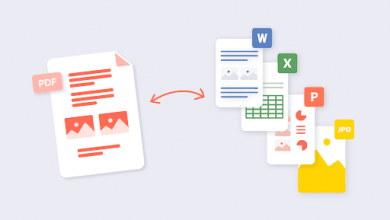How to Choose the Best Accounting Software in Saudi Arabia

The demand for the best accounting software in Saudi Arabia is growing as businesses adapt to digital transformation and strict VAT compliance requirements. From small startups to large enterprises, companies need reliable tools to manage invoices, expenses, and tax reporting efficiently. Choosing the right solution not only saves time and reduces errors but also ensures full compliance with Saudi regulations, helping businesses focus on growth and long-term success.
Daftra: A Leading Choice for Businesses in Saudi Arabia
When it comes to accounting software tailored for the Saudi market, Daftra stands out as a trusted solution for small, medium, and even large businesses. This cloud-based platform is designed not just to handle accounting but also to manage different aspects of business operations.
Why Daftra is Popular in Saudi Arabia
One of the biggest advantages of Daftra is that it was developed with the local business environment in mind. Unlike many international tools that require heavy customization, Daftra comes preloaded with features that directly address Saudi Arabia’s tax and accounting requirements. It is fully compliant with the Zakat, Tax, and Customs Authority (ZATCA) regulations, ensuring smooth VAT reporting and e-invoicing processes.
Key Features of Daftra
- VAT & E-Invoicing Compliance: Automatically generates VAT-compliant invoices according to Saudi regulations.
- Multi-Industry Use: Suitable for retail, services, healthcare, freelancing, and many more.
- Cloud-Based Access: Business owners can manage accounts anytime, anywhere.
- Inventory & HR Integration: Goes beyond accounting by offering payroll, employee management, and inventory tracking.
- Arabic Language Support: Unlike some global competitors, Daftra provides full Arabic support, making it easier for local businesses.
Benefits for Saudi Businesses
With its intuitive dashboard, Daftra simplifies complex accounting processes so that even non-finance professionals can manage daily transactions. It helps business owners save time, reduce operational costs, and avoid compliance risks. For companies looking to grow, the scalability of Daftra ensures it adapts as the business expands.
Understanding the Needs of Your Business
Before rushing to purchase any accounting software, Saudi businesses must first evaluate their specific needs. Accounting software is not a one-size-fits-all solution—what works for a small retail shop may not suit a large manufacturing company.
Business Size Matters
- Small businesses: Need simple, cost-effective solutions with basic invoicing and expense tracking.
- Medium to large enterprises: Require advanced features such as financial forecasting, employee payroll, and integration with ERP systems.
Cloud vs. Desktop Solutions
Cloud-based accounting software like Daftra, QuickBooks Online, or Zoho Books allows businesses to access their accounts from anywhere. On the other hand, desktop solutions may appeal to businesses that prefer local storage but often lack flexibility and scalability.
Customization and Scalability
As Saudi businesses grow, they need accounting tools that can expand with them. Choosing scalable software ensures that you won’t have to switch systems every few years, saving money and effort.
The key takeaway? Always assess your company’s size, goals, and industry requirements before choosing accounting software.
Key Features to Look for in Accounting Software
When evaluating options, certain features should be non-negotiable. Let’s break them down:
1. Financial Reporting & Automation
The best software provides automated financial statements, profit-and-loss tracking, and detailed reports to help business owners make informed decisions.
2. VAT & Tax Compliance
Since Saudi Arabia enforces VAT regulations, the software must automatically calculate and generate VAT-compliant invoices. This helps businesses avoid penalties and ensures smooth dealings with the ZATCA.
3. Multi-User Access
Businesses often require multiple users to access accounts—accountants, managers, and owners. Look for software that offers secure, role-based access.
4. Integration with Other Tools
Seamless integration with POS systems, CRM software, and e-commerce platforms makes financial management much easier.
5. Ease of Use
Not all business owners are accountants. The software should be simple, intuitive, and accessible even to those without a financial background.
By focusing on these features, Saudi businesses can narrow down their options and choose a platform that fits their operational needs perfectly.
Comparing Other Competitors in the Market
While Daftra is one of the strongest players in the Saudi market, several international competitors also deserve mention:
- QuickBooks Online: Widely used globally, offering strong reporting and integrations, though it lacks full Arabic support.
- Zoho Books: Affordable and flexible with strong automation, but may require customization for Saudi tax compliance.
- Xero: Known for its user-friendly interface and cloud-based approach, but less popular among Arabic-speaking users in Saudi Arabia.
These platforms have their strengths, but businesses in Saudi often prefer Daftra due to its local compliance, Arabic support, and industry-specific features.
The Importance of VAT Compliance in Saudi Arabia
Since the introduction of Value Added Tax (VAT) in Saudi Arabia in 2018, and the recent increase of VAT to 15%, compliance has become a critical aspect of business operations. Any accounting software chosen must be equipped to handle VAT requirements, not just in generating tax-compliant invoices but also in maintaining accurate records for audits.
Why VAT Compliance Matters
The Zakat, Tax, and Customs Authority (ZATCA) requires businesses to follow strict guidelines for invoicing and reporting. Non-compliance can result in hefty fines, penalties, or even business suspension. For small businesses, a single compliance mistake can be financially devastating.
How Accounting Software Helps
- Automated VAT Calculation: Software ensures accuracy in applying the correct tax percentage to invoices.
- E-Invoicing Support: Platforms like Daftra comply with Saudi Arabia’s e-invoicing (FATOORA) regulations.
- Tax Filing Made Easy: With built-in VAT reports, businesses can file returns without hassle.
In short, VAT-compliant accounting software protects businesses from legal risks and ensures smooth financial operations.
User Experience and Ease of Use
Choosing accounting software isn’t just about features—it’s also about usability. If a system is too complex, employees won’t use it effectively, which can lead to errors and wasted time.
Why Ease of Use is Crucial
Not every business owner is an accounting expert. In Saudi Arabia, many SMEs are run by entrepreneurs who may not have a dedicated finance team. For them, user-friendly dashboards, simple navigation, and automated processes make all the difference.
Features That Enhance User Experience
- Intuitive Interface: Clean design that makes it easy to generate invoices or reports.
- Arabic Language Support: This is essential for Saudi-based businesses to ensure accessibility for local staff.
- Role-Based Access: Managers, accountants, and employees can access different levels of the system without security risks.
- Mobile Apps: Easy access from smartphones allows owners to manage finances on the go.
When evaluating software, always test the user interface. If it feels too complicated, it may not be the right choice for your team.
Integration with Other Business Tools
In today’s interconnected business environment, standalone accounting systems are no longer enough. Companies need accounting software that integrates smoothly with other tools to create a unified ecosystem.
Why Integration Matters
- Saves Time: No need for manual data entry between systems.
- Increases Accuracy: Automated syncing reduces human error.
- Improves Business Insights: When accounting software is linked with CRM or inventory, you get a complete financial picture.
Essential Integrations for Saudi Businesses
- POS Systems: For retail stores, integration with POS ensures sales are automatically recorded.
- CRM Tools: Helps track customer payments and credit.
- HR & Payroll: Automated salary disbursement and compliance with Saudi labor laws.
- E-commerce Platforms: For online businesses, integration with Shopify, WooCommerce, or other platforms is key.
Daftra already provides many of these integrations, making it a popular choice, but businesses must check if their preferred software supports the specific tools they use.
Cost and Pricing Models
Budget is one of the biggest factors when choosing accounting software. In Saudi Arabia, pricing varies widely depending on the provider, features, and whether the software is local or international.
Common Pricing Models
- Subscription-Based (Monthly/Yearly): Most cloud-based solutions like Daftra and Zoho Books follow this model. It’s cost-effective for SMEs.
- One-Time Payment: Some desktop-based systems require a single upfront cost but often come with expensive upgrades.
- Freemium Models: Limited free versions are available with optional paid upgrades.
Hidden Costs to Watch For
- Extra fees for additional users.
- Charges for storage or data backups.
- Customization costs.
- Paid customer support or training.
Saudi businesses should carefully compare pricing plans and calculate the total cost of ownership before making a final decision.
Security and Data Protection
Data security is non-negotiable when it comes to financial management. Businesses in Saudi Arabia must ensure their chosen accounting software protects sensitive financial information from breaches.
Key Security Features to Look For
- Data Encryption: Ensures financial data is unreadable to unauthorized users.
- Regular Backups: Cloud solutions often provide automatic backups.
- Two-Factor Authentication (2FA): Adds an extra layer of protection.
- Compliance with Saudi Regulations: Local hosting options may be required by some industries.
For Saudi businesses, choosing software with strong data security not only prevents fraud but also builds trust with clients and partners.
Customer Support and Training
Even the most advanced accounting software can become useless without proper support and training. Businesses in Saudi Arabia must consider how easily they can get help when needed.
Why Support Matters
- Local Language: Arabic support is essential for smooth communication.
- Availability: 24/7 support ensures that technical issues don’t disrupt business operations.
- Training Resources: Tutorials, guides, and onboarding sessions help staff learn quickly.
Software providers like Daftra excel in this area by offering Arabic support, while some international tools may lack this advantage.
Mobile Accessibility and Remote Work
With the rise of remote work and mobile-first business operations, mobile accessibility has become a must-have.
Benefits for Saudi Businesses
- Manage invoices and payments from anywhere.
- Access financial reports on smartphones.
- Support for field workers and business owners always on the move.
Most modern platforms, including Daftra, QuickBooks, and Zoho, provide mobile apps, making it easier for Saudi businesses to stay connected to their finances at all times.
Future Trends in Accounting Software
Technology is rapidly changing the way businesses manage their accounts. Looking ahead, several trends are shaping the future of accounting software in Saudi Arabia.
Key Trends
- AI and Automation: Reducing manual data entry and predicting financial outcomes.
- Blockchain Integration: Ensuring secure and transparent transactions.
- Predictive Analytics: Helping businesses forecast revenue and expenses more accurately.
- Smart Integrations: More advanced links with ERP, HR, and e-commerce platforms.
Saudi businesses that adopt these innovations early will gain a competitive edge in the market.
Tips for Making the Final Decision
Choosing the right accounting software requires careful evaluation. Here are practical steps for Saudi businesses:
- List Your Requirements: Identify must-have features like VAT compliance, e-invoicing, or payroll.
- Test Free Trials: Most providers offer demos—use them to check usability.
- Check Customer Reviews: Learn from other Saudi businesses’ experiences.
- Evaluate Scalability: Choose software that can grow with your business.
- Compare Costs: Look beyond monthly fees to avoid hidden charges.
Following these steps ensures you select a platform that fits your current needs and future goals.
FAQs
1. What is the most popular accounting software in Saudi Arabia?
Daftra is highly popular due to its compliance with Saudi tax laws and Arabic support, though global tools like QuickBooks and Zoho are also used.
2. Why is VAT compliance important in Saudi accounting software?
Because Saudi Arabia enforces strict VAT regulations, software must automate VAT calculations and support e-invoicing to avoid penalties.
3. Is cloud-based software better than desktop solutions?
Yes, for most Saudi businesses. Cloud-based tools allow remote access, easier updates, and scalability.
4. Can small businesses in Saudi Arabia afford accounting software?
Yes, many providers offer affordable subscription plans starting from basic features for SMEs.
5. Does accounting software in Saudi Arabia support Arabic language?
Local solutions like Daftra provide full Arabic support, while some international tools may only offer English.

Source: How to Choose the Best Accounting Software in Saudi Arabia




